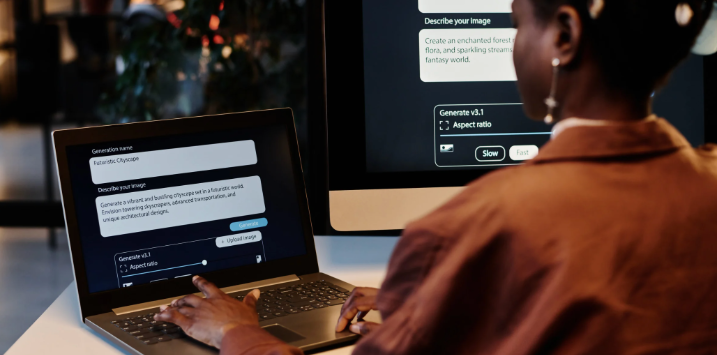
The latest AI goldrush – its not what you think
The race to lead in artificial intelligence (AI) feels like a modern gold rush, but instead of more power or better performance, the latest race is for people – brilliant minds.
I’ve been following the news, and it’s hard not to be struck by the sheer scale of what’s happening. Mark Zuckerberg, Meta’s founder, is making headlines by offering life-changing sums of money to lure top AI talent, pulling researchers from places like OpenAI with deals that sound more like sports contracts than tech salaries.
Imagine being offered US$100 million for a single year’s work – more than most people even dream of earning in a lifetime. That’s the reality for some AI researchers right now, with Meta’s top packages reportedly stretching to US$300 million over four years. These aren’t just numbers, of course; they’re life-altering and transformative opportunities that will secure a family’s future for generations.
Of course, they are also rounder errors for Mark Zuckerberg who Forbes estimates is worth US$177 billion. A $100 million salary offer – if it were coming out of Zuc’s personal wealth – would be just 0.05 per cent.
The competition for talent is so fierce that companies are racing to outbid each other, driving salaries to dizzying heights. I saw a post on X comparing one researcher’s move to Meta to a baseball player being traded to a new team – it’s a vivid image of how high the stakes have become.
What strikes many commentators is how personal this feels for Zuckerberg. He’s not just signing checks; he’s meeting with these researchers himself, hosting them at his homes in Palo Alto and Lake Tahoe. This week, he introduced Meta Superintelligence Labs (MSL), a new team led by individuals such as Alex Wang, who co-founded Scale AI, and Nat Friedman, the former CEO of GitHub. Meta’s US$14 billion investment in Scale AI shows how serious Zuckerberg is about catching up in the AI race. It’s reminiscent of his Facebook pivot to focus on mobile back in 2012. Back then he bought Instagram and WhatsApp to stay ahead. And given that Gen Y, Millennials, and Gen Alpha are all on WhatsApp and Instagram, rather than Facebook, their purchases was prescient.
This time, though, it’s not about acquiring companies– it’s about betting on the people who can build the future.
Breakups, Trump and ripple effects
This talent race is also creating ripples elsewhere. For example, it’s making it tougher for the U.S. government to recruit top researchers. Why take a government job when private companies are offering hundreds of millions?
Squeezing out the government doesn’t happen in China. The CCP would ‘disappear’ you if you tried. China can simply ‘command’ their talent to work on state projects.
Of course, Trump doesn’t like to lose any race. With Chinese AI models from companies like DeepSeek and Alibaba becoming popular in the Middle East, Asia and Africa, I wouldn’t put it past Trump to commandeer the best AI companies for government projects, perhaps suggesting Zuc et. al., need to return a favour for Trump’s very “Big and Beautiful’ tax cuts, and for not throwing the Magnnificent Seven to the antitrust lawmakers who’d love to break them up.
The numbers behind all this are staggering. OpenAI, the company behind ChatGPT, is now generating US$10 billion annually, with projections of reaching US$125 billion by 2029. Anthropic, another player, is at US$4 billion annually. These figures help to explain why Zuckerberg is investing so heavily – he sees the potential for AI to redefine everything, and he doesn’t want Meta to be left behind.
The human side of the race
For the analysts, programmers and researchers, there’s more than money at stake. Sure, on one hand, there’s the allure of Meta’s massive offers. But on the other hand, there’s the mission-driven culture at places like OpenAI, where Sam Altman has been vocal about prioritising innovation over profit. Altman recently told his team that while Meta snagged a few great people, many stayed because they believe in the mission. He called them “missionaries” versus “mercenaries”.
Still, you have to wonder what it’s like to be one of these researchers, sitting down with family to weigh a life-changing offer against the chance to build something meaningful. Sure, you can do something good by fulfilling the mission at OpenAI, but heck, you do plenty of good with US$100 million too.
Looking ahead
I am writing about this because I am unsure whether it marks a peak in a bubble or a more significant turning point. The AI race is pushing boundaries and not just in technology. Once you invest hundreds of millions in someone, they feel obligated to serve you and your desires. What if those include putting safety aside? And the jury is still out on whether AI will ever be safe. Additionally, what if the AI boom doesn’t deliver the massive returns everyone’s banking on?
For now, though, the race is on.